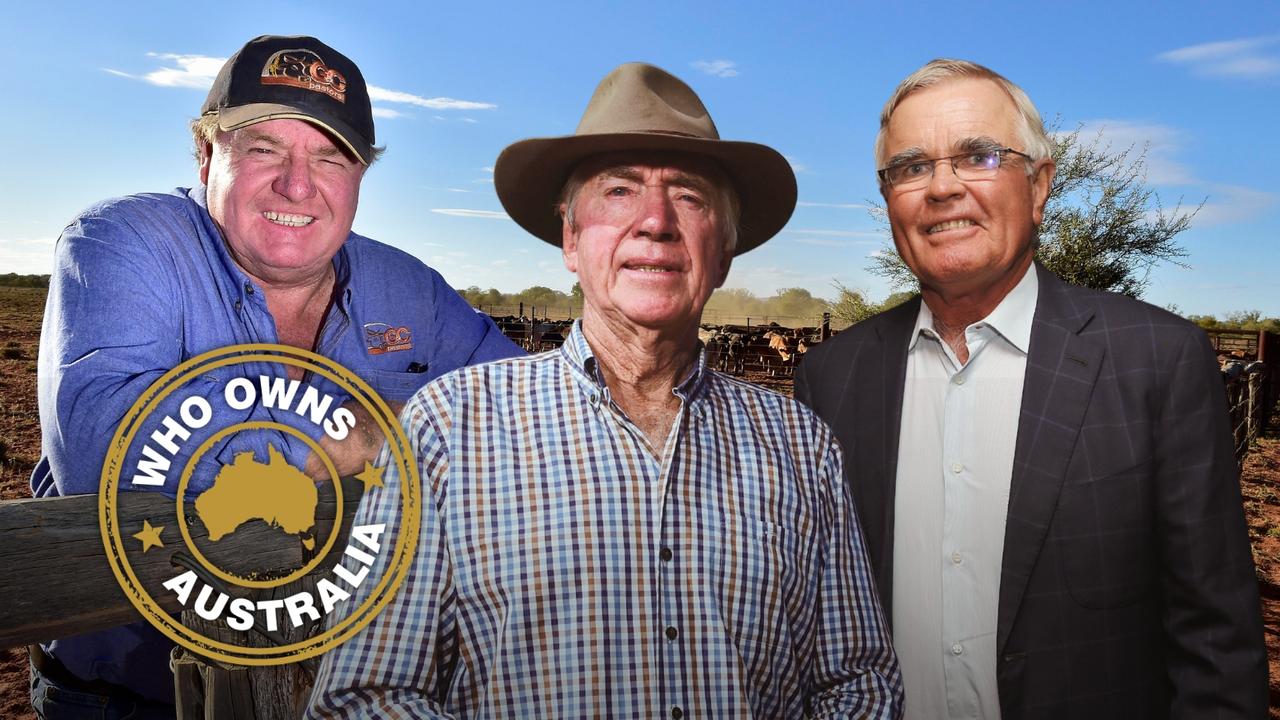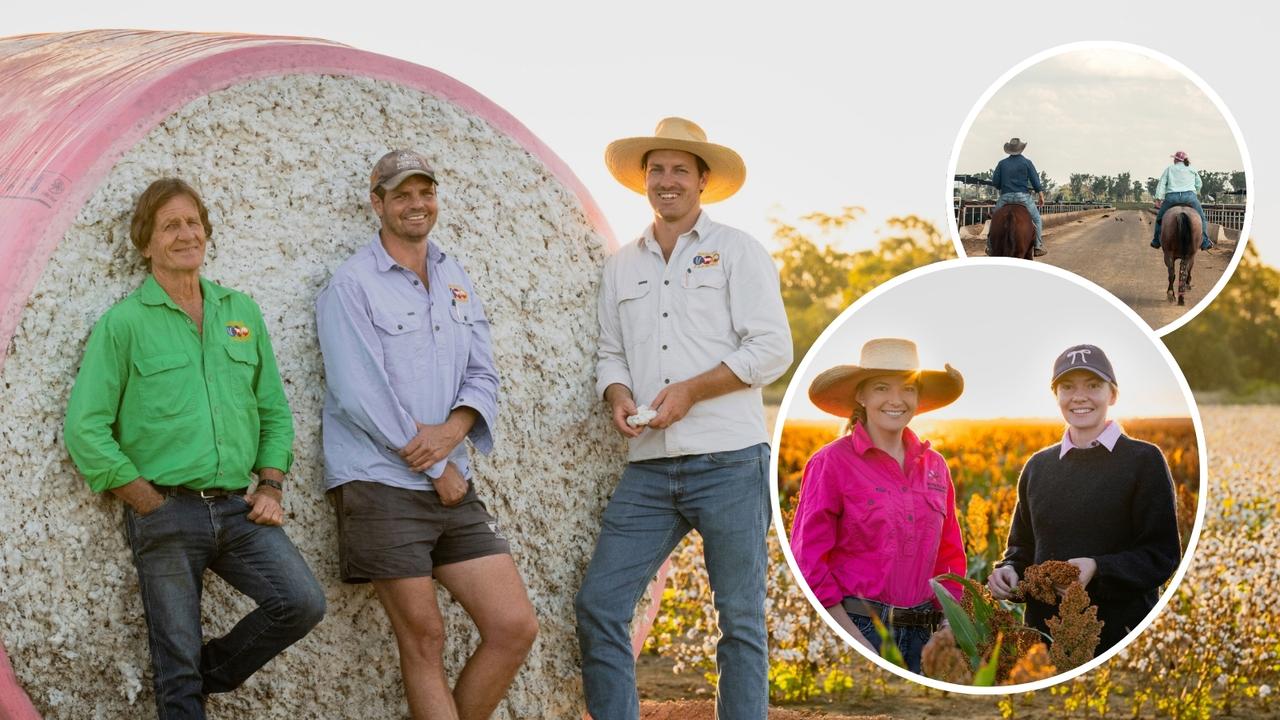AgJournal Sustainability Round Table: Live discussion with Anna Speer, Lucinda Corrigan, Margaret Jewell
Watch a replay of AgJournal’s sustainability round table, with expert panellists Anna Speer, Lucinda Corrigan and Margaret Jewell.
Producing food and fibre to feed the world has unique challenges in the Australian landscape. Operating in a geographically isolated region, with input costs spiralling, climate variability increasing and inflationary pressures putting the brakes on consumers’ purchasing power, agribusinesses have a lot to contend with.
Everyone along the supply chain, from the farm gate to the retail checkouts, has a role to play in making Australian agribusiness a global leader in sustainability, by developing strategies and solutions that suit our unique position.

Join Woolworths Group Greenstock managing director Anna Speer, Rennylea Angus director Lucinda Corrigan and Meat and Livestock Australia Carbon Neutral 2030 program manager Margaret Jewell to examine how businesses are measuring and benchmarking sustainability goals.
The discussion, hosted by AgJournal editor Camille Smith, will explore what policy developments are needed to help the agriculture industry hit or exceed emissions-reduction and climate change-mitigation targets, and what economic gains can be realised through adopting strong sustainability frameworks.
Readers’ questions will be answered live by the panel.
METHANE IN THE CROSS HAIRS
Agriculture Minister Murray Watt set tongues wagging in the industry last month when he expressed how “comfortable” he was about Australia signing up to the US-led Global Methane Pledge.
His comments signalled the Albanese government’s intent to join the 100-plus nations that support the international agreement, which puts methane in the cross hairs.
It’s an about-face in policy from the Coalition.
And it elicited quick responses from industry, including from the heads of the National Farmers’ Federation and Meat and Livestock Australia, who had been caught on the back foot by the public announcement.
Both organisations have already supported ambitious targets for industry-wide emissions reductions and set carbon neutrality goals for cattle, sheep and goat sectors.
NFF chief executive Tony Mahar says Australian farmers have made great strides towards bringing down greenhouse gas emissions and “deserved a seat at the table” when policy decisions are being made. Figures from the national farming peak body show the agriculture industry as a whole has decreased emissions by 65 per cent over the past 26 years.

MLA managing director Jason Strong emphasises the livestock sector is committed to reaching carbon neutrality by 2030, and is following a plan to both cut emissions and increase carbon capture to achieve that, using tools and technologies that wouldn’t compromise productivity or herd size.
Nations that join the pledge aren’t held to national targets, but instead agree to take voluntary action to reduce global methane emissions by at least 30 per cent from 2020 levels by 2030.
So the big question about the pledge, and its pinpoint focus on methane, is: Will it force producers to take a less holistic approach to cutting net emissions, to the detriment of productivity and profitability?
Methane is just one of many greenhouse gases.
And it is a powerful – but short-lived – one. The pollutant accounts for about half of the net rise in global average temperatures.
In Australia, agriculture contributes about 13 per cent of the nation’s total greenhouse gas emissions, and 42 per cent of that is methane, figures from the Climate Council show. Most of that methane is produced by cows and livestock as plant matter ferments in their stomachs. Smaller volumes come from fertilisers and wastes, including manure and decaying vegetable matter.

Manager of MLA’s CN30 program, Margaret Jewell, says its plan to hit the carbon-neutral target in eight years relies heavily on cutting methane emissions through genetic selection, grazing management and feed additives.
But she is cognisant that the plan needs to include a wide range of strategies to suit vastly different businesses.
“As an industry organisation we really don’t want to be tell our farmers what they must do to achieve carbon neutrality,” she says. “We want them to really be thinking about their own businesses, which are all different.”
The cattle and sheep industries have already reduced emissions by 59 per cent towards their CN30 goal, she explains, with the baseline levels set in 2005.
“The vast majority of that achievement has been through vegetation management change,” she says. “Red meat producers are custodians of about 355 million hectares of Australia’s land, most of which isn’t suitable for any other production other than ruminant livestock.”
Maintaining more vegetation coverage and stopping deforestation has led to increased carbon capture in the landscape, which has gone a long way to cutting net emissions.
“That has been the vast majority (of net gains),” Jewell says. “There also has been reductions due to increased efficiencies in animal production.
“We are continuing to shorten the time it takes to achieve sale weights for livestock, that is through herd and flock management practices; making sure we’ve got really fertile productive animals.” The less time it takes for an animal to go from paddock to plate, the less gas it releases into the atmosphere.

Achieving the next 41 per cent is going to be tougher to crack, she concedes, because vegetation management is “the low hanging fruit”.
“We absolutely need the remaining 40 per cent to have a major component of new technologies, which is going to be feed additives such as the red asparagopsis seaweed and other additives.” Genetics, too, will play a part, helping producers breed herds that are naturally lowers emitters, and reach target weights faster yet again.
Jewell says the main hurdles to reaching methane reduction goals is having enough investment in research and development, and in support to help farmers adopt cost-effective strategies.
“It’s very easy to put feed additives into feedlot rations. But it’s a whole new challenges to try to get those into grazing herds,” she says. “Absolutely there is the need for continued R&D to commercialise some really safe and effective feed additives that can do what we want them to do.
“And develop mechanisms to get them into all the different types of grazing systems we have in Australia. I guess the most challenging are the really extensively produced animals that don’t really even get seen by farmers more than once or twice a year. It is only about 4 per cent that are in feedlots at any one time.”
MLA has facilitated a total investment of $200 million towards the CN30 program since 2017, in producer levies and partnership projects with government-matched funding. “You can solve really complex challenges if you can throw enough money at problems,” Jewell says. “It is a really important thing to be doing.”




